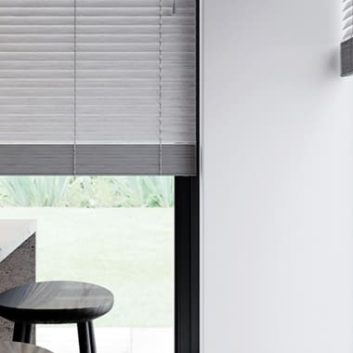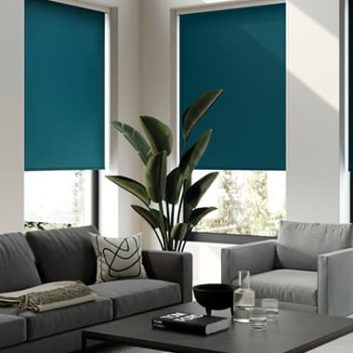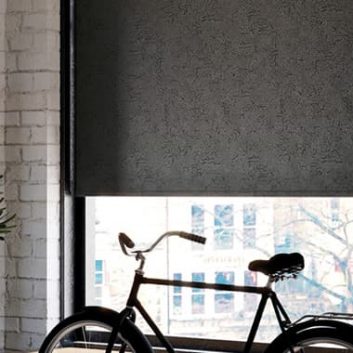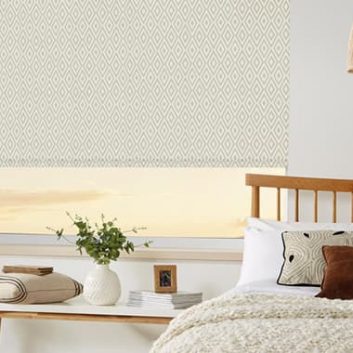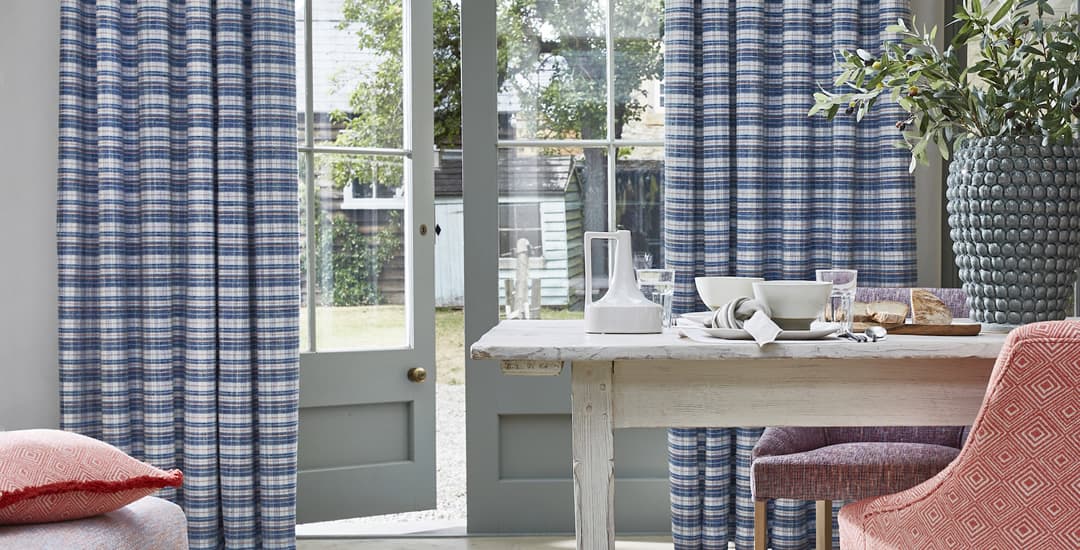
No, curtains and kitchens aren’t a good combination, for a whole host of reasons. Blinds are far more suitable for kitchen windows; specifically, waterproof blinds.
This blog post will tell you which is best for kitchens, blinds or curtains (and why), and tell you why curtains aren’t well suited for kitchens.
Is it ok to have curtains in the kitchen and why/why not?
In approximately 99.9% of kitchens, curtains are a bad idea. If your kitchen is one of the 0.1% that never gets humid, doesn’t result in cooking smells, isn’t ever splashy or messy, doesn’t use any open flames or sources of high heat, and uh, is largely used to store takeaway menus and to prepare cold drinks, then you may be ok.
In simpler terms, curtains aren’t waterproof, which means that they don’t tend to last long in kitchens due to the condensation and humidity, and possibly direct contact with water and spills too.
The propensity of curtains to blow about in a breeze can also make them a kitchen fire hazard depending on the proximity of the curtains to any sources of flame or heat, and also, the fabric of curtains will pick up both vapourised cooking fat and cooking odours over time too.
This will cause them to look grimy and smell funky, and because they’re not waterproof, they can’t be cleaned effectively either.
Which is best, blinds or curtains in kitchens?
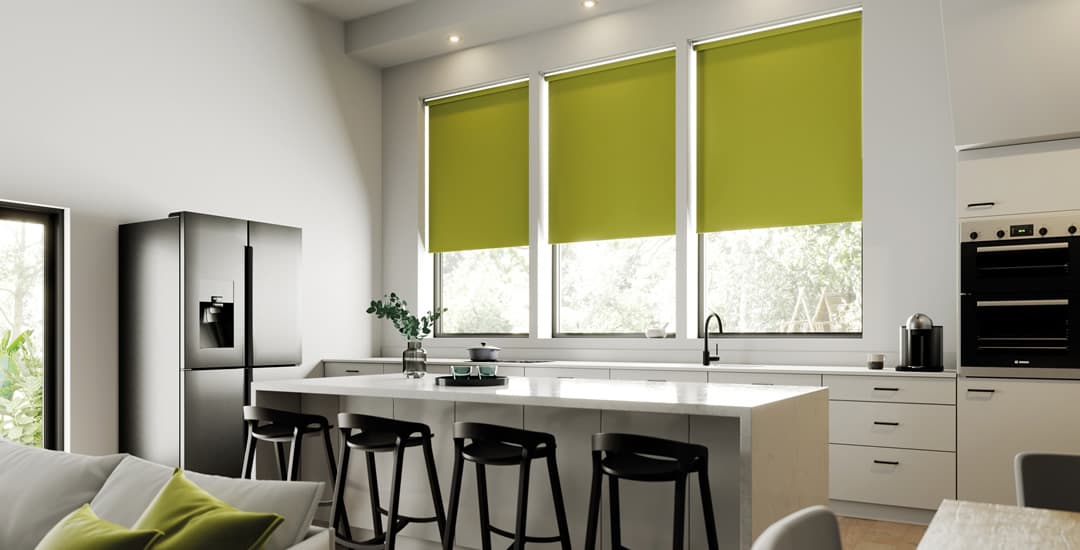
Blinds are definitely more suitable for kitchens that curtains; specifically, waterproof blinds like PVC or vinyl roller blinds, and vertical blinds respectively, or faux-wood blinds, which are made of rigid PVC.
All of these types of blinds can withstand steam and humidity as well as being splashed, and can be wiped clean. They won’t absorb cooking smells and churn them back out into the room, and they won’t blow about and run the risk of coming into contact with a hob flame or other source of heat.
Why shouldn’t you have curtains in kitchens?
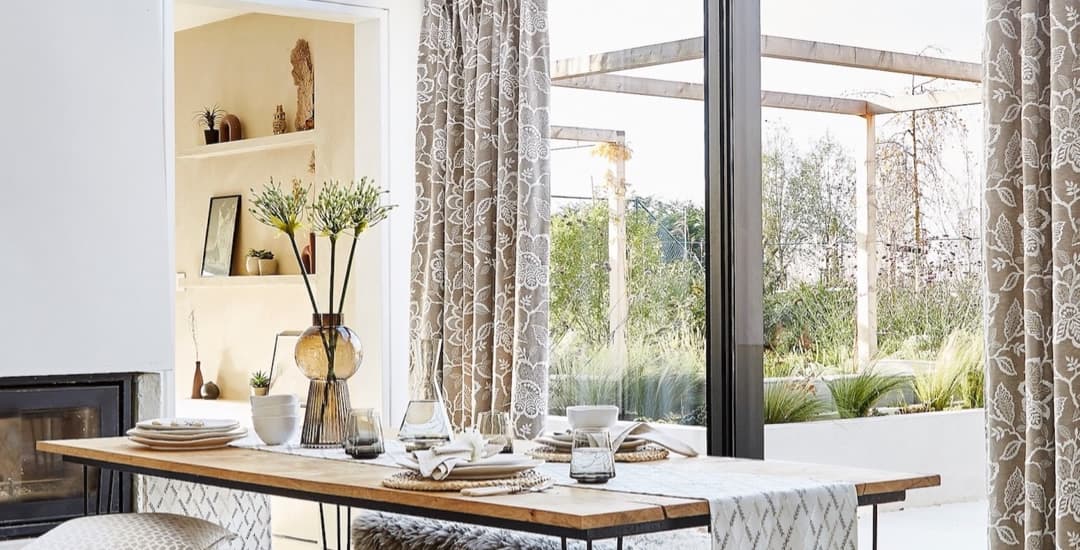
Both the cosmetic and functional condition of curtains will suffer within just a few months in most kitchens, and if they’re damp due to a lot due to steam and humidity, they’re apt to begin to grow mildew in short order. Because curtains are gathered or pleated and also fold up when opened, they will not really get a chance to air out properly in a kitchen that is in regular use, expediting the process of them beginning to fall apart and look scruffy.
They are also apt to serve as a kind of diffuser for strong cooking smells, and can make the whole kitchen smell of lingering, stale food all on their own.
Finally, whilst the fabrics used to make curtains commercially in the UK are almost always fire retardant, they still represent a greater potential fire risk in the kitchen than blinds.
Is it ok to have curtains in the kitchen if the kitchen doesn’t get wet or humid?
Whilst a kitchen where you never really cook with water or use the kettle or otherwise cause humidity and/or splash water about will serve as a safe home for curtains in terms of water damage and mildew growth, you’re still going to be left with all of the other mentioned problems.
These include the potential fire risk, as as well as harbouring cooking smells.

